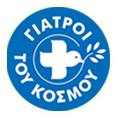The funding limits create significant barriers to access to basic health services in poor countries. Other evidence shows that when these obstacles are overcome, the use of medical services increases and the mortality of mothers and infants reduces. So we demand to support new ways of funding such as the fund financing which has started from the Alianza Tasa Robin Hood, of which the (Spanish) MDM are part.
In many countries getting sick can have consequences as serious as a personal Calvary. It is estimated that each year for more than 100,000 people from those who are hit by poverty, the expenses that they must face to access health care are responsible and hundreds more resign from treatment due to lack of money. The obligation of paying for medical care is one of the major obstacles for access to health. In Africa, only 10% of the population may have medical coverage. To extend this coverage, particularly the most vulnerable, some African countries have adopted measures to facilitate free medical care. Such case is Niger, where in 2005 measures were taken for pregnant women and children under 5 years. Also, Sierra Leone, Mali and Burkina Faso have taken similar measures lately, making the levels of mortality in mothers and infants to fall, demonstrating the effect they can have such measures in the indigent population.
The case of Niger
Since 2005, Niger, one of the poorest countries in the world, introduced a payment exemption for pregnant women and children under 5 years. This policy had a significant impact on the use of health services. Thus, 85% of pregnant women now enjoy the continuation of pregnancy, compared with 40% in 2005. Free access to health care for children under 5 years has also contributed to the early treatment for diseases that lead to infant mortality. For example, since 2006, the diagnosis of diarrhea cases quadrupled and immune coverage for measles in infants 12 to 23 months old increased from 47% to 65.6%.
Before this initiative, the impact on costs had dramatic consequences. ”To carry a child, his parents had to find a sheep to sell and pay for the transportation of their son. Many times, even before the family managed to get the money, the child had died” says Hamsatou Gobi, a health center manager.
Recent estimates of infant mortality, according to UNICEF and the World Health Organization has emphasized the development of Niger, being one of the countries where mortality rates decreased in children under 5 years (from 311 to 1,000 genniountan who live in 1995 reached 143 to 1,000 in 2010).
Despite initiatives such as Niger and other countries in the region are still faraway from stabilizig their survivability. The lack of funding and international aid threatens to weaken even these little things which have been achieved socially. Over 42% of global expenditure on health in Niger are paid by the users themselves, much more than the proposal of the World Health Organization in terms of not exceeding the direct payments in 15 to 20%.
The payment exemption policy in Niger is not an isolated phenomenon. Other African countries in the region of the Sahara have begun to implement initiatives to eliminate or reduce the financial barriers that limit access to health services for the population.
Sierra Leone improves its data
In Sierra Leone, since last year, the government has started the implementation of the initiative ”Free Health Care Policy” to facilitate the free medical care for children under 5 years old, pregnant and lactating women. In this country with one of the worst health indicators in the world, a visit to the doctor can be considered equivalent to the average individual monthly income.
In the second quarter of 2010, according to measurements FHCP, there was an increase of 150% of medical visits among children under 5 years. Also, births in health centers and dispensaries care of women after childbirth, have increased in line with an assessment of the initiative.
To be viable and extensive these policies need to take the necessary long-term financial assistance.
”The success depends on the political and financial commitment of governments and international donors for the financing to be supported”says Alvaro González, chairman of MDM. ”The acceptance of a valuation of international financial transactions – continues – would contribute decisively to the initiatives against poverty, such as this.”
G20
Ιt is critical to recognize the universal access to basic medical coverage as the focal point of any system of social protection. The meeting of the G20 is a chance to send a help message in low income countries wishing to take part in the ambitious reforms to payment exemption.
Less than four to five years before completion of the timeframe for the completion of the Millennium Development Goals, it is essential that all countries of the G20 make their commitments to help developing countries, which depends on strengthening health systems, to guarantee access internationally.
• G20 should recognize the medical coverage as a cornerstone of social protection. We propose that the final statement contains specific reference to the initiatives of those poor countries which seek to eliminate direct payments for health and to achieve the commitment and financial support to help these countries to maintain such payment exemption programs.
• The G20 and EU countries should refer to the need to develop financing methods for social protection and social sectors in general, the development of new fiscal resources through innovative financing mechanisms for health and finally the provision of international assistance to countries with low revenue.
• The G20 should support and adopt a tax rate on international financial transactions promoting the birth of funds to contribute to initiatives for payment exemption for the use of medical services.
